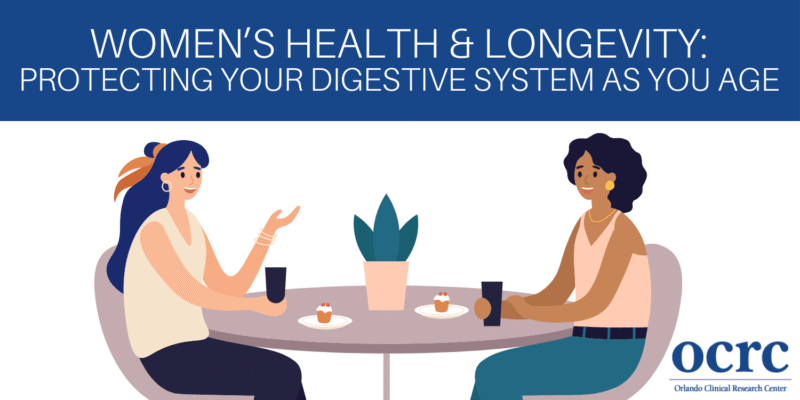
Your digestive system does far more than process the food you eat. When it comes to women’s health, their digestive health is incredibly protective and influences many other body systems.
Improving your gut health can strengthen your immunity and overall health. Here’s what you should know about the connection between your health and digestive system.
Hormones are the chemical messengers for your entire body. Your digestive system is no different. Proper digestion relies on key hormonal signals to process, move, and excrete the foods you eat.
As you age, however, your hormones fluctuate and your digestion can shift. Sex hormones like progesterone and estrogen tend to drop in your body as you approach menopause. These hormones are crucial for nutrient absorption and comfortable digestion.
The small muscles in your digestive tract (your stomach, intestines, and bowels) may start to weaken with age. This can increase your risk of constipation.
Along with small muscle weakness, drops in progesterone and estrogen can slow your digestion as you age. You may find yourself easily bloated and feeling uncomfortably full after smaller amounts of food.
As your hormones shift, your gut microbiome does, too. Changes in numbers and types of specific microbes in your gut can make your digestive system more resistant to some foods. Your stomach might not be able to tolerate certain foods as well as it used to, leading to uncomfortable gas and bloating.
Your gut microbiome communicates and interacts with specialized immune cells to defend your health. As you age, these bacterial populations shift, which can change their relationship to your immune system.
Specialized gut bacteria help your immune system by:
When your gut health isn’t as solid as it used to be, you become vulnerable to a range of health problems, especially as you get older.
One way that poor gut health can affect your long-term health is by failing to regulate inflammatory responses. Excess inflammation is a common factor in autoimmune diseases, which mostly affect women.
Chronic inflammation caused by poor gut health may also put other organs, like your heart and kidneys, at risk.
Hormones and gut health are both common culprits of mood changes when it comes to women’s health.
As you enter middle age, these factors may affect brain signaling. Important bacteria in your gut help produce neurotransmitters like dopamine and serotonin, the “feel-good” chemicals that increase your sense of well-being.
Unbalanced hormones can negatively impact your digestion and vice versa. Hormonal fluctuations are often responsible for mood swings, irritability, and other unpleasant symptoms.
Protecting your gut health is paramount to balancing your hormones and feeling your best every day.
Don’t be alarmed; there are plenty of lifestyle changes you can make to protect your gut health as you age. As advances in medicine and research come up, you can combine the fruits of science with better habits to enjoy long-term health and wellness.
Women should get around 25 grams of fiber each day. It helps keep your digestion regular, which also helps keep your hormones in check. You can get high-quality fiber from fruits, vegetables, and whole grains.
Daily physical activity helps stimulate digestion to keep things moving. Even a 10-minute walk each day yields heart, digestive, and mental health benefits. Don’t skip out on your daily exercise!
Probiotics are naturally found in fermented foods like sauerkraut, kimchi, and some dairy products like yogurt. They introduce healthy gut bacteria back into your system to strengthen your gut microbiome.
Stress and sleep are two big factors in women’s health. Limit your stress levels and find healthy outlets for your feelings, like exercise, journaling, and yoga.
Make sure you get enough shut-eye each night as well. Sleep regulates important hormones that affect your hunger levels and gut bacteria. Aim for seven to nine hours of quality sleep each night.
At Orlando Clinical Research Center, we facilitate phase I clinical trials to help make advancements in science and medicine.
As we support scientists through these trials, we help unlock more information about the connection between women’s digestive systems and their long-term health. Contact us to learn more about our research facilities today!
